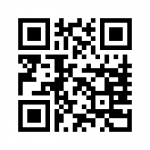Home » Sygeforsikring
Category Archives: Sygeforsikring
CBEC PROGRAM – Cognitive Behavioural Executive Coaching for optimal well-being and performance – without stress
I offer individual cognitive coaching programs for leaders and decision-makers. I have been doing this for several years, and the programs are popular.
Experience-based and effective coaching programs
The programs have evolved over the years as leaders have approached me, having heard about me from others in their network. They expressed a desire for individualized and tailored coaching programs. As a result, I have collaborated with each leader to customize and optimize their programs, and they have been very satisfied with the results. Leaders have shared that my coaching goes deeper, brings about more significant changes, and develops them more than other coaching they have experienced.
Leaders are under significant emotional pressure
Today’s leaders face significant emotional and personal demands. Leaders must withstand high levels of stress, with all their emotional vulnerabilities being triggered, while maintaining a cool head and making necessary rational and professional decisions. Towards employees and superiors, leaders must demonstrate empathy and compassion in words and actions without expecting, or being dependent on, reciprocation. This mental and emotional demand can naturally lead to reduced well-being and performance over time, making leaders vulnerable to burnout and stress-related reactions such as anxiety and/or depressive responses. However, if a leader can remain firmly grounded in their emotional balance, they can maintain their resilience and even improve their well-being and performance.
Insight into and understanding of one’s emotional system
In the CBEC coaching process, the idea is that insight is necessary to set new personal goals and initiate development. Therefore, the program begins with thorough testing and registration of psychological state and personality, understood in the context of one’s past life and acquired personal and emotional experiences. Through this process, leaders gain a comprehensive overview and understanding of how their fundamental assumptions about themselves, their character, and their abilities naturally stem from both genetically inherited traits and their experiences in the environment. Leaders literally draw the model of their own emotional system during the program. Becoming aware of learned emotions and vulnerabilities, which can also be referred to as “sensitive points” or “buttons,” helps leaders make sense of their reactions. Having this model, and the understanding it provides, helps leaders better comprehend why they react strongly or in certain ways in specific situations. These reactions in thoughts, emotions, and automatic behavior are not always suitable and often hinder the leader’s goals – how they want to be/act in different situations without being emotionally challenged.
Development, well-being, and performance through training
Understanding and insight into one’s emotional system and expected automatic reactions in thoughts, emotions, and behavior help the leader avoid self-criticism and self-devaluation. The leader becomes better at understanding themselves, and their reactions make more sense to them. This releases energy for the leader to better coach themselves in challenging situations where their “sensitive points” are triggered. However, before reaching this point, repeated and thorough analyses of reactions are required – down to the smallest details in automatic thoughts and emotions and their connections to previous experiences. In these analyses, leaders progress to understanding how they would like to act in various situations. Once the desired behavior in different situations is determined, the work continues to create and further develop new and different thoughts and attitudes that the leader needs to facilitate behavioral changes.
Changed thinking and behavior over time alter attitudes and fundamental assumptions
When a leader has successfully, on numerous occasions, thought and acted differently in various situations and emotional states, these new coping strategies become internalized. The emotional and memory systems learn from experience, allowing the new strategies of thinking and behavior to be automated and leading to changes in the leader’s fundamental assumptions about themselves and their abilities. Who they are and what they can achieve in relation to others and the world around them. When a leader reaches this stage, the coaching program typically ends or is phased out, and the leader continues to work independently with their insights, methods, and tools. However, there is an option for follow-up coaching sessions and booster conversations if the leader desires.
Content of the program
The programs are planned and tailored individually to each leader. There are many methods and tools from the evidence-based cognitive-behavioral therapeutic toolbox that can be offered and applied in the program. The duration and desired psychological depth of the program also play a role in the selection of methods. The programs typically include the following elements:
Life history schema: Before the first session, the leader receives a comprehensive form for registering historical data, aiding in a quicker and more thorough understanding of past experiences and life lived.
Psychological Health Check: Individually assembled test battery that measures stress levels, well-being, anxiety, social insecurity, mood, self-esteem, burnout, fundamental negative assumptions, and coping strategies.
Personality Test (NEO-PI-3, occupational): An internationally recognized, evidence-based, and widely used measurement of personality based on five factors and 30 facets.
Expanded CBT/ACT/CFT thought journal: The leader practices registering and analyzing automatic reactions in specific situations, understanding their reactions and the functions of their emotions, keeping their goals in mind, and formulating the most suitable thinking and experience to internalize the new learning. This is used at home and during sessions.
Behavioral experiments: The leader investigates how they react in critical situations.
Training: The leader applies agreed-upon techniques in work or private life.
Exposure: The leader exposes themselves to feared/challenging scenarios in mental imagery or in reality.
Visualization: The leader explores/recalls past experiences from memory or tests/investigates new planned strategies in future scenarios.
Role-playing: During sessions, the leader plays themselves or others, and I play the roles of the leader or others.
Chair exercises: The leader practices feeling, thinking, and reacting as different parts of themselves, engaging in a constructive, supportive, and coaching dialogue with the other parts. For example, between the insecure part and the coaching-supportive part of themselves.
Duration and hours
The programs are tailored to individual preferences and needs and usually span a period of 3-6 months, with sessions lasting 2-3 hours every other week. This corresponds to 12-24 hours (2 hours per session) or 18-36 hours (3 hours per session) with meetings in Espergærde. The sessions can also take place at the leader’s workplace. Expect 2-5 hours of weekly homework/training for the optimal benefit of the program. Many leaders undertake the program instead of, or in addition to, the coaching or development programs they are typically offered by their companies and organizations. They do this to ensure a program that is carefully planned, structured, and executed according to their specific desires, needs, and thus provides them with the greatest benefit.
Some info about me
I am a psychologist working in own private clinic and as a consultant in Espergærde and internationally through internet based video connection. I am a trained psychologist from Århus and Copenhagen Universities, licensed, authorized and have completed the internationally recognized 2-year specialized training in cognitive behavioral therapy. Additionally, I have trained with several of the most skilled specialists in various fields within the cognitive and behavioral therapeutic domain. I see myself as a specialized generalist in terms of optimally applying psychological theory in coaching and therapy.
I look forward to collaborating with you in a CBEC program
Udvidet dækning til psykologbehandling i 2016
Hvis du har brug for behandling ved psykolog og er medlem af sygeforsikringen ”danmark” kan du glæde dig til deres  udvidede dækning i 2016.
udvidede dækning i 2016.
Fra 1. januar 2016 giver ”danmark” tilskud til medlemmerne i gruppe 5, 1 og 2 til behandling ved autoriseret psykolog hvis man er/har:
-offer for røveri, vold eller voldtægt
-offer for trafikulykker eller andre ulykker
-pårørende til alvorligt psykisk syge personer
-ramt af alvorligt invaliderende sygdom
-pårørende til personer der er ramt af alvorligt invaliderende sygdom
-pårørende ved dødsfald
-forsøgt selvmord
-fået foretaget provokeret abort efter 12. graviditetsuge
-været udsat for incest eller andre seksuelle overgreb inden fyldt 18 år
-let til moderat depression
-let til moderat angst, herunder let til moderat OCD
I 2015 har det været et krav at man skulle være 38 år eller derover og lide af let til moderat depression eller let til moderat angst for at få tilskud til psykologbehandling ved autoriseret psykolog uden offentligt tilskud. I 2015 har man kunnet få 200 kr. pr. individuelle behandling og maksimalt 4800 kr. pr. år (gruppe 5, 1 og 2). I 2015 har børn og unge under 18 år kunnet modtage 200 kr. pr. individuel behanding hos autoriseret psykolog og maksimalt 1600 kr. pr. år (gruppe 5, 1 og 2).
I 2016 fjernes alderskravet helt og der ydes tilskud i alle ovennævnt listede tilfælde. Det er en klar forbedring af dækningsvilkårene og størrelsen af tilskuddet forbliver endda det samme selvom dækningen udvides; 200 kr i tilskud pr. behandling hos autoriseret psykolog og maksimalt 4800 kr. pr. år (gruppe 5, 1 og 2). Og så gives der i 2016 tilskud på 200 kr. til alle individuelle behandlinger for børn og unge under 18 år uanset årsag til behandling og maksimalt 1600 kr. pr. år. (gruppe 5, 1 og 2).
Se ”danmarks” takster for tilskud til psykologbehandling i 2016 ved at følge dette link.
Se “danmarks” takster for tilskud til psykologbehandling i 2015 ved at følge dette link.
Du er velkommen til at kontakte mig hvis du har spørgsmål til behandling eller coaching hos mig eller har spørgsmål til tilskudsmuligheder fra ”danmark”.
Nikolaj Hyll
– din kognitive psykolog i Nordsjælland

